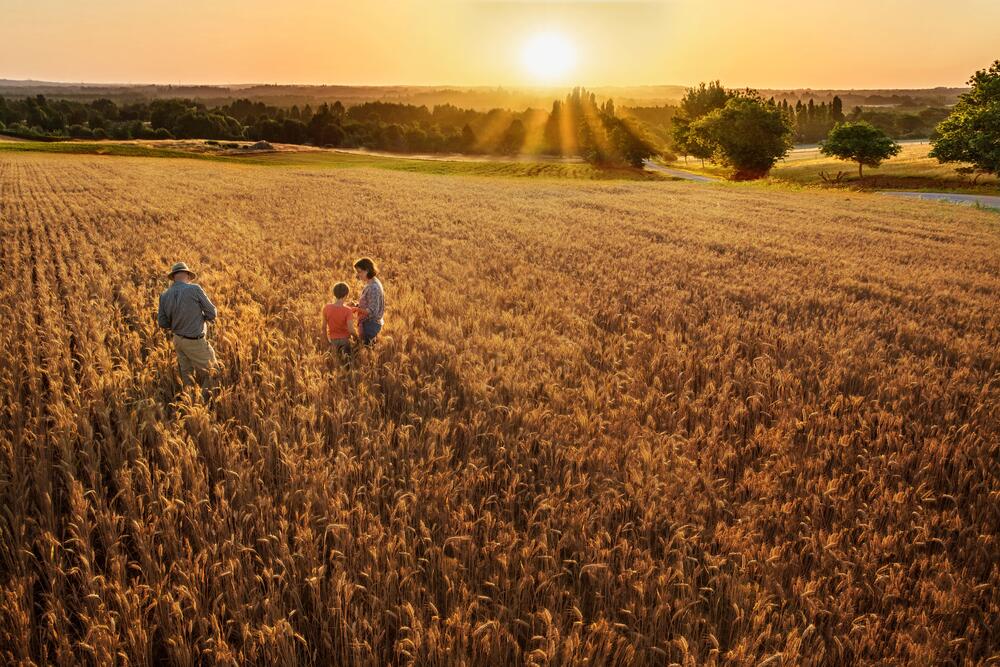Canadian Farmers Want Carbon Tax Relief, and What it Means For You

From PEI to the prairies, farmers across Canada are waiting with baited breath to see what will happen next with a private member’s bill that was debated in the House of Commons
by Canada Powered by Women
The legislation in question, Bill C-234, would exempt farmers from paying the federal carbon tax on propane and natural gas, when it is used to heat and cool barns and greenhouses, as well as for drying grains.
One big reason farmers want the exemption is because they say the cost has become too much to manage. And of course, when farmers’ costs increase, some of those costs get passed on to consumers.
For instance, Alberta rancher Brooke Donaldson notes, “When ranching costs go up, we have to pass that price increase on to the next person in the chain. When we have to pay tax to heat the barn to store the cows, we have to sell cows to a butcher at a higher price. And so on, until you’re paying crazy high prices for steak and ground beef.”
“Moving forward with this version of the bill creates an unjust inequity for thousands of farmers left paying carbon prices on essential practices despite their shared need and lack of alternatives”We know from our conversations with engaged women coast-to-coast, that affordability is a top concern for them. And with food prices in Canada forecast to go up another 4.5% in 2024 — that’s $16,297.20 in grocery bills for a family of four — many consumers can’t afford a penny more.
A Statistics Canada survey released late last year showed a whopping 15% of Canadian households are forgoing basic necessities such as food or medicine in order to heat their homes.
Farmers are aware of these challenges, and want to be part of the solution.
“Canadian farmers need to know that our federal government will support them as they work to put food on the plates of every Canadian,” Grain Farmers of Ontario Chair, Brendan Byrne, says in a statement.
“The carbon tax has proven to be an unbearable new cost for farms — and it is increasing every year. Passing this bill would provide our farmers some relief as they work to dry grain and ready it for food production.”
This isn’t the first time we’ve seen pushback on the carbon tax, as we saw when exemptions for home heating oil were introduced last year.
In the case of farming, the total cost of carbon taxes for growers range from $150,000 per year for an Ontario mushroom farm, to $100,000 for a poultry farm in Alberta and $10,000 for a 5,000 acre grain farm in Saskatchewan.
“Grain drying isn’t a nicety, it’s actually a necessity,” says Byrne. “Wet grain must be dried quickly or it can quickly spoil. We are being taxed on a necessary process for food production.”
The farm-to-table debate on innovation and technology
Farmers have historically been ahead of the curve when it comes to adopting climate-smart practices and the agriculture (aka “Ag”) industry is often credited as being an early adopter of technology.
When it comes to the energy used to dry grain, farmers say other low-emission alternatives to propane and natural gas are not available and low-carbon sources of energy like natural gas will continue to be part of the diverse and reliable energy mix serving the agriculture sector — especially as the industry increasingly invests in carbon offset technologies.
Growers have long proven they are interested in the development of new technologies that can help reduce farm energy consumption and carbon emissions. These options just take a lot of time and money to create, and it’s difficult to invest in innovation when faced with high tax bills.
Farmers say the carbon tax is holding them back from investing in upgrades that would reduce emissions and “hurting the agricultural sector’s ability to stay competitive and drive innovation.”
The Ag industry represents 7% of Canada’s GDP, so roadblocks have real consequences for Canadian prosperity.
Plowing forward on Bill C-234
Originally introduced two years ago, the bill has successfully made it through the House of Commons before (with support from MPs from all parties), but was sent back by the Senate with proposed amendments in late 2023. The amendments included removing any exemption on carbon tax for propane and natural gas, and that’s what farmers want to see fixed.
What happens next?
The bill was debated Jan. 29, and some MPs want to see it prioritized and back into discussion on Feb. 6, 2024. Many are asking for the bill to go back to the Senate with original language that makes propane and natural gas exempt from the carbon tax for drying grain.
Scott Ross of the Agriculture Carbon Alliance, a group representing more than a dozen national farm and commodity organizations, says “moving forward with this version of the bill creates an unjust inequity for thousands of farmers left paying carbon prices on essential practices despite their shared need and lack of alternatives.”











